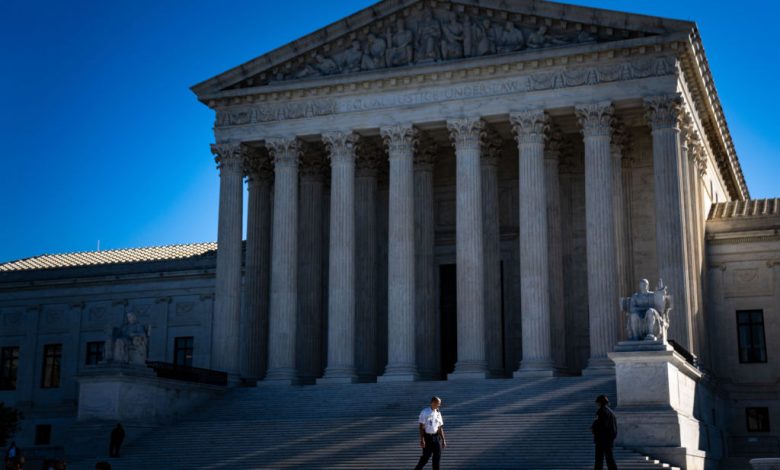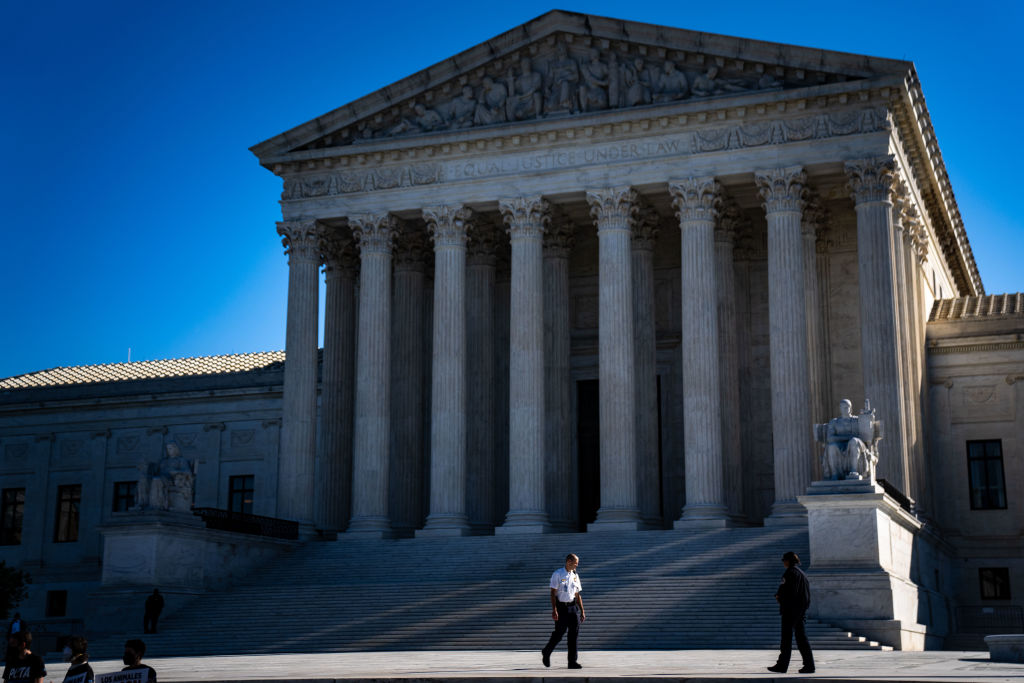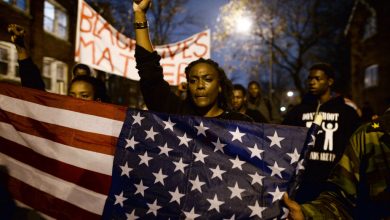Upcoming Court Elections Put Justice On The Ballot


Source: Kent Nishimura / Getty
While many have celebrated the historic appointments of Black and other people of color to the federal bench, state and local courts still have a way to go. In several states, judges are directly elected by voters.
According to Ballotpedia, more than 80 state supreme court seats are up for grabs this election cycle in states like Alabama and Mississippi, along with intermediate appellate court positions. State courts hear more than 100 million cases each year, according to the Alliance for Justice.
Approaches for selecting judges depend on the state
Different states use different methods for selecting judges. Some judges are appointed, with voters later voting on whether the judges should be retained.
These retention elections are a simple yes or no on the judges up for review. This is the case in states like Florida. The governor appoints judges and state Supreme Court justices, highlighting the importance of races and the election.
Also, many judicial races are nonpartisan, with judges simply running without a party affiliation publicly displayed. This can pose a challenge for voters to figure out who to choose.
In some races, there are clear distinctions between the candidates that help people cast their votes. But judicial elections are among the least researched races on the ballot, given the lack of information. Sometimes a local or state bar association, or other legal organization, may have a guide to judicial elections.
During the confirmation process for U.S. Supreme Court Justice Ketanji Brown Jackson, U.S. Senators kept questioning her judicial philosophy. Similarly, state Supreme Court justices and lower court judges have their own understandings and interpretations of the law.
State Supreme Court elections
State Supreme Courts play an important role in interpreting the legality of state laws and serve as the court of last resort. Note not all states call their highest court the Supreme Court.
While many states have an intermediate appeals court, eight states and the District of Columbia do not have one. This can limit the ability of people to pursue appeals for issues at the lower court level.
Data review by Stateline found that 95% of legal cases in the United States are heard at the state level. And yet, Black and other people of color make up less than 20% of State Supreme Court justices, far less than their share of the population.
Some races have seen increasing importance after the U.S. Supreme decimated the right to abortion in Dobbs v. Jackson Women’s Health Organization. State Supreme Court justices could decide on challenges to state laws prohibiting or restricting abortion.
State Supreme Courts also address issues ranging from election outcomes to correcting prior injustices. In 2022, ahead of that year’s midterm elections, the Louisiana State Supreme Court determined that it would not order new trials in cases that involved Jim Crow-era split jury decisions.
Lower court elections
While sources like Ballotpedia can be a good starting place for learning about judicial races, they only cover local races in the top 100 cities. Local news outlets and organizations like local bar associations or even the local chapter of the League of Women Voters may have more information about judicial races.
Judicial offices also have different names depending on the community. One example is a justice of the peace, who does a lot more than marry people.
SCOTUS reform
Supreme Court reform lingers in the background of the 2024 elections, too. The nation’s highest court could face some reforms depending on who controls Congress in the new term. That is especially true after Democratic Wyoming Congressman Ron Wyden last month introduced sweeping Supreme Court reforms that, if approved, would add six justices.
With the advanced ages of Justices Samuel Alito (74) and Clarence Thomas (76), the next president could have the opportunity to nominate at least two Supreme Court judges if they decide to step down at some point during the following four years.
In that context, a presidential vote could mean the Supreme Court will either add to its existing conservative supermajority that decided to overturn historic rulings like Roe v. Wade, or have new liberal judges joining the three who currently sit on the SCOTUS bench.
Make sure you check out our Election Resource Center for more information.
Written by NewsOne’s editorial team.
PAID FOR BY BLACK PROGRESSIVE ACTION COALITION. NOT AUTHORIZED BY ANY CANDIDATE OR CANDIDATE’S COMMITTEE.
SEE ALSO:





